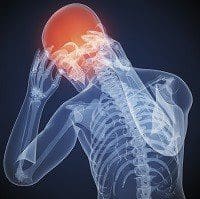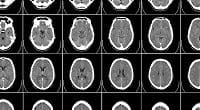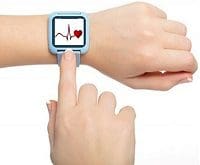Interview: Bill Moreau, USOC on Evidence-based Medicine to Reduce Sports Injuries
We discuss the success of Analytics in predicting sports injuries, recent progress in concussion management and the trends in data-driven evidence-based sports medicine.
 Dr. Bill Moreau, DC, DACBSP, CSCS is managing director of sports medicine at United States Olympic Committee(USOC) . He is a chiropractic physician and conservative evidence-based sports medicine clinician. In his current role, he oversees the organization’s sports medicine activities – including providing medical care to U.S. athletes at the Olympic Games and flagship U.S. Olympic Training Center in Colorado Springs, Colorado – and the USOC’s National Medical Network.
Dr. Bill Moreau, DC, DACBSP, CSCS is managing director of sports medicine at United States Olympic Committee(USOC) . He is a chiropractic physician and conservative evidence-based sports medicine clinician. In his current role, he oversees the organization’s sports medicine activities – including providing medical care to U.S. athletes at the Olympic Games and flagship U.S. Olympic Training Center in Colorado Springs, Colorado – and the USOC’s National Medical Network.
He served as Team USA’s medical director at the London 2012 Olympic Games and the Sochi 2014 Olympic Winter Games, in which he was responsible for administering medical care to more than 500 athletes as provided by more than 100 medical providers.
Dr. Moreau has more than 30 years of clinical expertise in both general practice and sports medicine. He serves on the editorial review board of the Journal of Chiropractic Medicine and has served for many years with the American Chiropractic Board of Sports Physicians.
First part of interview
Here is second part of my interview with him:
Anmol Rajpurohit Q5. So far, how successful has Data Analytics been in predicting sports injuries (and thus, avoiding those injuries through proactive actions)?
Dr. Bill Moreau: We are making steady headway using data to drive change. A great case study is our women’s wrestling program. Since developing the Elite Athlete
 Health Profile (EAHP) program, which includes individual athlete risk profiling and development of injury prevention programming, there has been a 60% reduction in injuries that required surgical intervention for this team. Interventions that were identified by the EAHP included programs to reduce shoulder dislocations/instability injuries and non-contact ACL injuries. To date these programs have been extremely effective over a four year term. We continue to track this specific analytic over time.
Health Profile (EAHP) program, which includes individual athlete risk profiling and development of injury prevention programming, there has been a 60% reduction in injuries that required surgical intervention for this team. Interventions that were identified by the EAHP included programs to reduce shoulder dislocations/instability injuries and non-contact ACL injuries. To date these programs have been extremely effective over a four year term. We continue to track this specific analytic over time.
AR: Q6. What are the specific goals of your on-going research on concussions? Any interesting observations, so far? What kind of implications do you foresee for your study?
 BM: Concussion can present in any athlete participating in any sporting activity. The best methods of management are to address the first step of injury prevention by establishing a better understanding of injury incidence across the many sport populations we work with. Concussion best practices are evolving. Through the focused measurement and evaluative processes we now have a better grasp on concussion incidence in the sports we work with.
BM: Concussion can present in any athlete participating in any sporting activity. The best methods of management are to address the first step of injury prevention by establishing a better understanding of injury incidence across the many sport populations we work with. Concussion best practices are evolving. Through the focused measurement and evaluative processes we now have a better grasp on concussion incidence in the sports we work with.
USOC Sports Medicine is dedicated to researching concussion to gain a better understanding of the epidemiology of concussion across the many sports we serve as well as the natural progression of concussion symptoms and best practices for recovery in the elite athlete.
The key to concussion management is to ensure that the athlete has recovered from their injury before they are returned to play. We foresee that we can use our sports medicine analytics to serve as a base of evidence to evaluate existing recovery strategies as well as investigate and provide new safe interventions to help athletes to safely return to sport from a concussion injury. This return to play decision is a key and monumental task because of the individual variability in concussion presentation and recovery. We do not use time to dictate the recovery from concussion, rather each individual with concussion must be assessed and managed based upon their specific presentation with considerations to many modifiers and variables.

USOC Sports Medicine collaborates with International leaders in providing concussion research to best protect athletes and better understand best practices in concussion management and return to play decision processes.
AR: Q7. What trends will dominate the advancement of data-driven evidence-based sports medicine in the next 2-3 years?
 BM: Data mining from the electronic health records with forward looking and retrospective analysis will identify correlations between existing and newly available metrics regarding the correlation to health and performance outcomes. These findings will drive and further allow for new discoveries in health and human performance now and with an exponentially increasing return in the next few years.
BM: Data mining from the electronic health records with forward looking and retrospective analysis will identify correlations between existing and newly available metrics regarding the correlation to health and performance outcomes. These findings will drive and further allow for new discoveries in health and human performance now and with an exponentially increasing return in the next few years. The future of identifying injury and disease processes before they are experienced is the next frontier that is at our front door. Researchers around the world are pressing the envelope to better understand how we can use data to not only drive best practices in care management, but more importantly preserve the health of individuals by preventing injury and illness.
The ultimate multivariable subject is humankind. Each of us has our own assets that both mitigate and drive risk of injury and illness. Over a course of time there will be identified commonalities for many injuries and illnesses whereby the variable that can be changed will be changed to lead to predictive preventive outcomes. My perspective is this is the single most important area that drives my thoughts around the application of data; to preserve an individuals’ health.
 A part of the first question may be answered through wearable technology. Anyone with a heartbeat can see the exponentially increased data available to sports medicine practitioners and scientists though wearable technology. Many biomechanical and biomedical measurements that were only available in the laboratory setting are now readily available in field settings through reasonably priced clinical wearable packages.
A part of the first question may be answered through wearable technology. Anyone with a heartbeat can see the exponentially increased data available to sports medicine practitioners and scientists though wearable technology. Many biomechanical and biomedical measurements that were only available in the laboratory setting are now readily available in field settings through reasonably priced clinical wearable packages.
Taking technology to the field allows individuals, researchers and clinicians to record, measure and provide real time biofeedback with previously unavailable measurement technologies such as force pates, pressure sensors and 3-dimensional motion analysis and a vast array of other measurements.
Third part of the interview
Related:
